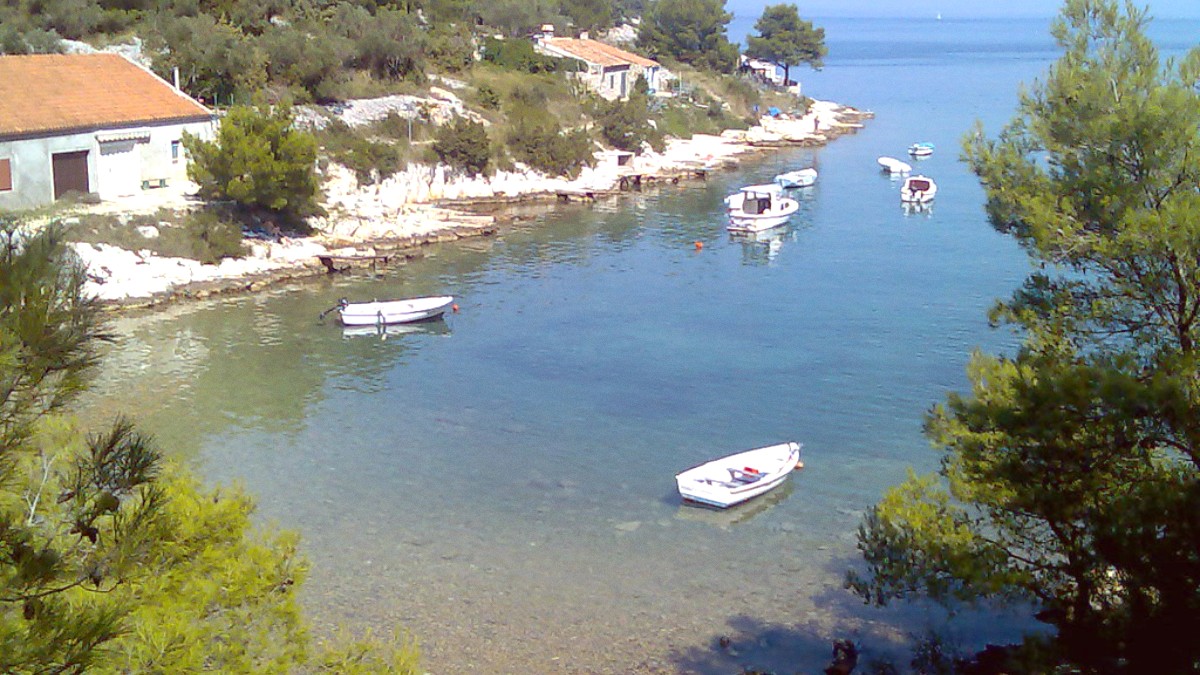
Gulf Of Kvarner, Croatia
It presents a blend of seafood traditions from the Adriatic, hearty meat dishes from the interior, and pasta/risotto influences. The Kvarner region, including Rijeka, is a reputation for its fresh ingredients, quality olive oil, aromatic herbs, and unique seafood, specifically Kvarner scampi.
Ingredients include fresh seafood (fish, squid, mussels, scampi), olive oil, garlic, Mediterranean herbs (rosemary, bay leaf), tomatoes, and potatoes. Homemade pasta varieties like fuži and pljukanci are common, alongside prosciutto (pršut), local cheeses (like Paški sir), lamb, and wild game. Flavors often hold simple qualities, allowing fresh ingredients to shine. Dishes typically display rich, savory, and aromatic qualities.
Dining customs in Rijeka generally remain relaxed. Waiters do not rush diners. Bread often comes served automatically, sometimes for a small charge.
Tipping does not hold obligatory status, but a 5-10% tip or rounding up the bill remains common for good service.
A significant part of daily life. Locals dedicate much time socializing over coffee in cafes.
These small, incredibly sweet and tender langoustines often come prepared "na buzaru" (stewed in white wine, garlic, and tomato sauce) or grilled.
Find them in most seafood restaurants.
A hearty, thick vegetable and bean soup or stew, often featuring smoked meat or corn. This peasant dish holds comforting and flavorful qualities.
Search for it in traditional konobas.
An omelet prepared with seasonal wild asparagus (in spring), truffles (in autumn), or other local vegetables and herbs. Common throughout Istria and Kvarner.
Often grilled or marinated, sardines comprise a staple of coastal cuisine, especially fresh during summer.
Available in simple eateries and at markets.
Grilled minced meat patties or skinless sausages, often served with onion and ajvar (red pepper relish). These popular Balkan street foods are widely available in fast food joints and grill restaurants.
A slow-cooked dish, typically meat or octopus with potatoes and vegetables, prepared under a bell-shaped lid ("peka") covered with embers. This dish needs advance ordering and typically serves groups.
Search for it in traditional konobas.
A traditional Dalmatian slow-braised beef dish, often served with gnocchi. While more prevalent in Dalmatia, some Rijeka restaurants feature it.
Deep-fried pastries, often served during holidays or festivals. Krostule are thin and crispy, while fritule are small, round dough balls.
A custard dessert similar to crème brûlée, more common in Dalmatia but sometimes found locally.
Cakes featuring local figs.
Opatija, a short drive from Rijeka, hosts renowned high-end seafood restaurants like Navis and Bevanda. Within Rijeka, some hotel restaurants, like those at Grand Hotel Bonavia, extend more upscale dining experiences.
Mid-range restaurants are numerous throughout the city center and along the coast.
A bustling indoor and outdoor market near the waterfront. It features an impressive fish market, a meat hall, dairy products, fresh fruits, vegetables, and flowers.
Visit in the morning for the best selection.
Rijeka features a growing number of international restaurants, including Italian (pizzerias, pasta), Asian (Chinese, Japanese), and some fast-food chains.
Increasingly available. Specify "bez mesa" (without meat) or "vegetarijansko" (vegetarian). Vegan options may need more searching.
Extremely rare. Travelers should plan to cook or opt for strictly vegetarian/fish options.
Growing awareness. Specify "bez glutena" (gluten-free). Larger restaurants may accommodate. Carry a Translation card for severe allergies.
Use online search tools and communicate clearly with staff. Supermarkets offer specific diet products.
Dining on the Botel Marina presents an unique experience.
Traditional konobas deliver an authentic, traditional dining experience.
Daily lunch specials in local eateries. They represent a traditional way to experience local cuisine at an affordable price, usually for lunch.
Rijeka hosts various food-related events throughout the year, often centered around seasonal produce or specific dishes, like a Fish Festival. The Central Market frequently features themed days.
No prominent hot springs are directly in Rijeka.
Nearby Opatija is a reputation for its wellness and spa tourism, with numerous hotels offering extensive facilities.
No widely promoted traditional healing practices exist for tourists.
Consider trying the daily "marenda" (lunch special) at local eateries for an authentic and economical meal.